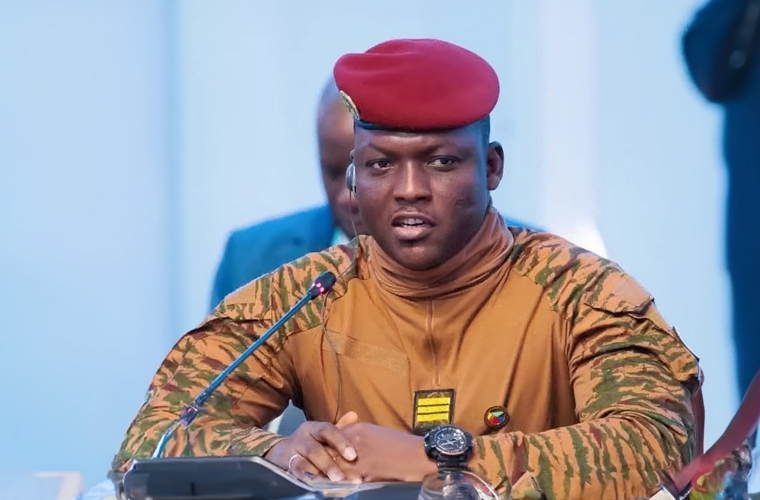Burkina Faso’s President Ibrahim Traore, at the age of 35, has emerged as a dynamic and influential leader in the West African region. Since assuming office, President Traore has demonstrated a commitment to addressing the key challenges facing his country and has implemented a range of policies aimed at promoting economic growth, social development, and political stability.
President Traore’s rise to power has been characterized by his strong vision for the future of Burkina Faso. Born and raised in the capital city of Ouagadougou, he has a deep understanding of the country’s history, culture, and socio-economic dynamics. Before assuming the presidency, President Traore held several key positions in the government, where he gained valuable experience in governance, public administration, and policy-making.
One of President Traore’s key priorities has been to address the issue of poverty in Burkina Faso. Despite being one of the fastest-growing economies in the region, Burkina Faso continues to grapple with high levels of poverty and inequality. In response, President Traore has implemented a series of economic reforms aimed at stimulating growth, creating jobs, and reducing poverty. These efforts have included initiatives to promote entrepreneurship, attract foreign investment, and improve access to education and healthcare.
In addition to his focus on economic development, President Traore has also worked to strengthen Burkina Faso’s democratic institutions and promote good governance. He has championed efforts to enhance transparency, accountability, and the rule of law, and has sought to empower civil society organizations and the media. President Traore recognizes that a strong and vibrant democracy is essential for the long-term stability and prosperity of Burkina Faso, and he has been a vocal advocate for political reform and inclusive governance.
President Traore has also been active on the international stage, seeking to position Burkina Faso as a key player in regional and global affairs. He has been a strong proponent of regional integration and cooperation, working closely with neighboring countries to address common challenges such as security, trade, and environmental sustainability. President Traore has also been an advocate for greater representation of African nations in international forums, calling for a more equitable global order that reflects the interests and priorities of the African continent.
In the realm of security and defense, President Traore has been proactive in addressing the threat of terrorism and extremism in the Sahel region. Burkina Faso has faced significant security challenges in recent years, with armed groups posing a threat to stability and civilian safety. President Traore has worked to strengthen Burkina Faso’s security forces, improve border control measures, and enhance regional cooperation in counter-terrorism efforts. He has also emphasized the importance of addressing the root causes of extremism, including poverty, marginalization, and lack of opportunity.
Looking ahead, President Traore remains committed to advancing Burkina Faso’s development agenda and ensuring a brighter future for its people. He recognizes the importance of building strong institutions, investing in human capital, and fostering a climate of innovation and entrepreneurship. President Traore is also mindful of the need to address environmental challenges, including climate change and natural resource management, as part of Burkina Faso’s sustainable development strategy.
In conclusion, President Ibrahim Traore’s leadership has brought renewed energy and vision to Burkina Faso’s governance. His commitment to economic development, democratic reform, regional cooperation, and security has positioned Burkina Faso as a rising star in West Africa. As he continues to steer the country towards progress and prosperity, President Traore remains a dynamic and influential figure on the African continent.

